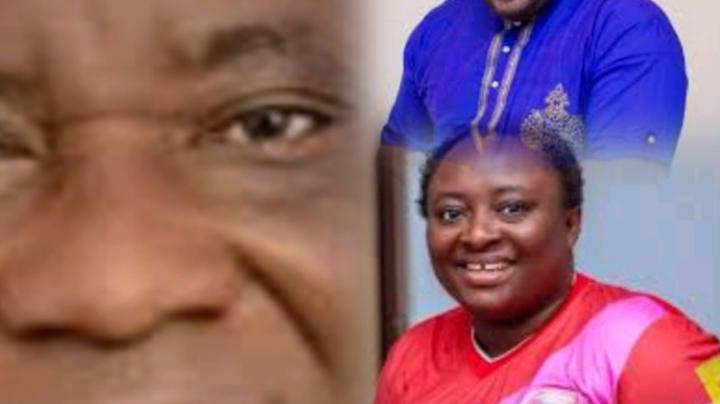According to OnuaTV, a leading member of the Movement for Change and former parliamentary aspirant of the New Patriotic Party (NPP), Hopeson Adorye, has raised serious concerns about the ongoing investigations into the ghost names scandal at the National Service Authority (NSA). During an interview on Onua TV on March 5, 2025, Adorye criticized the selective nature of the investigation, suggesting that key individuals involved in the fraud have been overlooked while others, including former NSA Deputy Executive Director Gifty Oware-Mensah, have been unfairly targeted.
Adorye’s frustrations stemmed from what he perceives as a biased approach to the investigation, particularly the scrutiny of Oware-Mensah, who he argues, was not directly involved in the fraudulent activities. Though he acknowledged that she may have indirectly benefited, Adorye emphasized that she was not at the core of the scandal. According to him, the individuals who were truly responsible for the ghost names scheme are not facing the necessary level of investigation.
“The people who are not involved in this process have become the face of this scandal. This is what is worrying me the most,” Adorye expressed in Twi, urging authorities to broaden their search for accountability.
Adorye pointed out that those overseeing crucial aspects of the National Service Scheme (NSS), particularly the management of NSS pin codes, had not been held accountable. One of the key figures Adorye singled out was Henry Nana Boakye, also known as Nana B, who served as Deputy Executive Director in charge of operations at the NSA. Despite his central role in managing the generation of NSS pin codes, Nana B has not been summoned for questioning.
“Nana B, who was Deputy Executive Director in charge of operations, is walking around organizing press conferences. They were the ones who were in charge of the generation of NSS pin codes. The NIB has not invited him. Why is that the case?” Adorye questioned, highlighting what he views as a troubling double standard in the investigation process.
Adorye also raised concerns about the role of Mustapha Ussif, the former NSA Executive Director, who now serves as a government minister. According to Adorye, the ghost names scandal began under Ussif’s leadership, yet Ussif has not faced any serious scrutiny. Adorye speculated that Ussif’s current ministerial position could be protecting him from being investigated.
“I don’t understand why some of them are in their homes. They have not been invited to come and answer any questions. The Executive Director should have been investigated first,” Adorye argued, calling for Ussif to be held accountable for the alleged misconduct during his tenure.
He further questioned whether Ussif’s ministerial appointment as Sports Minister might have shielded him from any legal repercussions. “He is the one who was made sports minister, Mustapha Ussif. It was during his time that the ghost names thing started… Why has he not been invited? Is it because he was a minister?” Adorye asked, raising doubts about the impartiality of the investigation.
Adorye’s comments have sparked fresh debates over the fairness of the ongoing investigation into the ghost names scandal. His concerns touch on broader issues of accountability and transparency in public institutions, with critics questioning whether political influence is affecting the probe’s integrity. As the investigation continues, it remains to be seen whether the authorities will broaden their focus and ensure that all individuals involved are thoroughly investigated, regardless of their political standing.
The growing public interest in this case reflects increasing calls for justice and transparency, urging authorities to address corruption without bias or selective enforcement.
